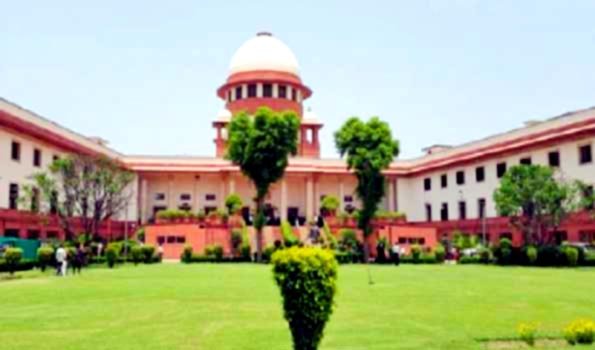New Delhi, Jul 28 (UNI) In a significant relief to the West Bengal government, the Supreme Court today stayed the operation of a Calcutta High Court order that had stalled the state’s initiative to finalise a fresh list of Other Backward Classes (OBCs).
A three-judge Bench comprising Chief Justice of India (CJI) B.R. Gavai, Justice K. Vinod Chandran, and Justice N.V. Anjaria passed the interim stay while hearing the state government’s plea challenging the June 17 High Court order.
The apex court held that the High Court’s intervention was “prima facie erroneous” and appeared to transgress into the domain of the executive.
“Since the Indra Sawhney judgment of 1992, it is well settled that the executive has the authority to initiate and revise reservation policies,” the Bench noted. Expressing surprise at the reasoning adopted by the High Court, the Bench stated, “We are unable to comprehend the logic behind the stay granted.”
Senior advocate Kapil Sibal, representing the West Bengal government, argued that the High Court’s stay had adversely impacted recruitment processes and resulted in contempt petitions against officials. He emphasized that the revised list was being prepared in good faith, following proper procedures through the state OBC Commission.
The Calcutta High Court had earlier halted the new list on the grounds that it sought to reintroduce communities previously excluded due to lack of data. In May 2024, the same court had struck down the inclusion of 77 communities, citing insufficient justification for their classification as OBCs.
In response, the state had informed the court of its plan to initiate a fresh exercise via the OBC Commission. However, the High Court found the attempt inadequate and imposed an interim stay, suspecting that it aimed to reverse the previous judicial directive.
Disagreeing with the High Court’s assessment, the Supreme Court observed that the methodology adopted by the Commission deserved thorough judicial scrutiny but should not be stayed at the preliminary stage. “Whether the methodology was appropriate or not is a matter for the High Court to examine. But an outright stay without a full hearing cannot be sustained,” the court noted.
Ordering the matter to be heard expeditiously, the top court asked the Chief Justice of the Calcutta High Court to constitute a special bench to decide the case within six to eight weeks. The Bench also specified that the judge who had previously presided over the case should not be part of the new bench.
Meanwhile, the apex court directed that the status quo be maintained to prevent disruption in governance and public appointments, and issued notice in the matter.
Underscoring the importance of judicial restraint in matters involving caste-based reservations, the court’s decision allows the West Bengal government to continue with its policy efforts, pending final adjudication on the legality of the revised OBC list.
The stay comes as a boost for the Mamata Banerjee-led administration, which had maintained that the update was necessary to ensure equitable representation and uphold the principles of social justice.











